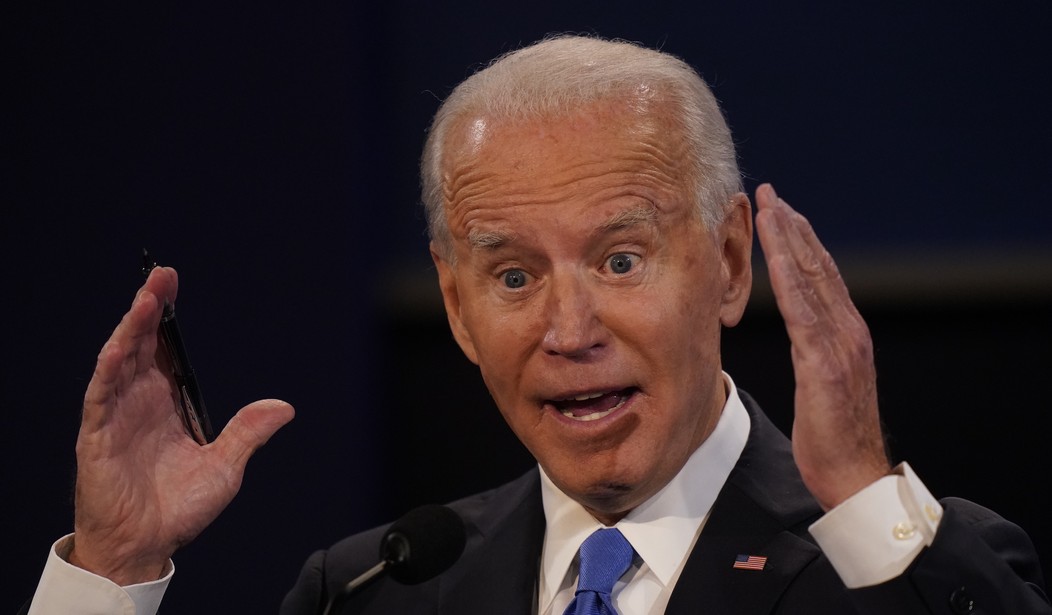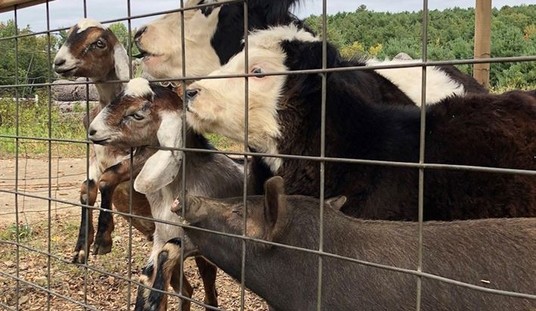With today being election day, a lot of people will be spilling a lot of virtual ink on what comes next. The campaigns are over. The last of us will vote today and then all that’s left is the counting. In theory, we’ll know the outcome tomorrow, though with all the absentee ballots cast this year, it may take a few days longer.
Regardless, people now start talking about what comes after.
For some, a Biden victory is a foregone conclusion. For others, it’s not.
Yet for some journalists, it’s easy to delude themselves into thinking Biden represents unity for this country, especially on so-called wedge issues like guns.
As the 1970s drew to a close, the Republican Party confronted an existential crisis. Stagnating wages, declining jobs and increasing inequality meant that Americans would soon flee the GOP – seen by many as the party of big business and corporations – for the Democrats, long viewed as champions of the working class.
If not for the politicization of religion (in 1979) and guns (in 1977), the Republican Party might have faded into irrelevance by the mid-1980s.
But in 1980, the newly ascendant “religious right” mobilized millions of previously apolitical evangelicals, who propelled Ronald Reagan to the White House. Like its newest supporters, the Republican Party was reborn
…
Should Joe Biden win the 2020 election, he must direct a laser-like focus to take on America’s wedge issues. If he fails to do so, the extreme political polarization afflicting the United States will only deepen and remain a potent political undercurrent.
Worst of all, should the rhetoric around racial identity become increasingly bitter, ideological violence may surge to ever-higher levels.
Biden’s task would not be easy. Deeply entrenched beliefs make any dispassionate conversation on abortion and guns nearly impossible. But a President Biden could start by highlighting just how far the debate around these issues has shifted.
Now, keep in mind that this is the same Joe Biden who is calling for taxing lawful gun owners to the tune of $200 per so-called “assault rifle” and an additional $200 per “high-capacity” magazine, of which there are probably millions in circulation. He’s called for the banning of the most popular model of firearm in the nation. He’s called for universal background checks that will only hurt law-abiding citizens.
All of that and someone still thinks he can somehow unite us on issues like this?
Joe Biden isn’t a uniter. He’s a part of the political machine that has divided this nation for decades. With almost five decades in national politics, he’s had ample opportunity to unite people.
He never has.
Instead, he’s campaigned on wedge issues, taking more and more radical positions on things like guns. He campaigned in the primary extensively on gun control. Since then, he’s made it clear the only candidate with a more radical anti-gun agenda would be his point man on the issue. He’s remained fairly quiet on guns in the general election, of course, but over the weekend, he reiterated his support for gun control.
In all of that, just how does anyone think it’s even possible that he can highlight how the debate has shifted on those issues without highlighting his own role in that?
The Hill goes on to talk about shifts at the NRA and their view of guns.
Like abortion, guns did not evoke particularly deep passions initially; for over a century, the National Rifle Association was strictly nonpartisan, focusing on gun safety, hunting and sport shooting. But the 1977 revolt, which overthrew the NRA’s leadership, ushered in the partisan, politicized organization Americans are familiar with today.
The NRA’s extreme shift fundamentally altered the debate around guns. For 200 years, firearm ownership in America was almost universally interpreted as a collective right (in the context of “militias”). That all changed in the 1970s, as law journals increasingly referred to a new, individual right to bear arms.
Moreover, the NRA largely ignored the Second Amendment for most of its history — utterly unthinkable today. It may also come as a shock that the NRA supported and helped craft gun control legislation before its radical transformation in the late 1970s.
First, the idea of whether firearm ownership was a collective or individual right was largely academic. Americans had the right to own any firearm available. Once upon a time, you could buy a Thompson sub-machinegun and have it shipped directly to your house. Whether it was an individual right or simply applied to the states doesn’t matter when it has absolutely no bearing on whether you can buy a gun or not.
The rise of gun control in the 20th Century–quite distinct from the earlier rise in the 19th Century which were exclusively the domain of racists trying to disarm black men and women–came at a time when rights weren’t really a thing in a lot of people’s minds. I mean, let’s remember that this was also around the time when people decided to ban alcohol on a national level.
In the 1970s, though, a stronger push for gun control. People wanted to ban handguns. That was too far for many and they started standing up to that. That included the membership of the NRA, which decided that the organization’s time of backing gun control was over.
Yet this so-called analysis forgets that it was the push for more restrictive gun control measures that triggered this.
Then again, they forget that Joe Biden was a member of Congress for much of that time, a man in a position to potentially diffuse the tensions. Instead, he jumped on the gun control train and worked to take the helm. Now he has it.
No, he won’t be part of anyone trying to resolve the issues. He’s been the wedge for decades. There’s no reason to believe that’ll change if he wins.








Join the conversation as a VIP Member